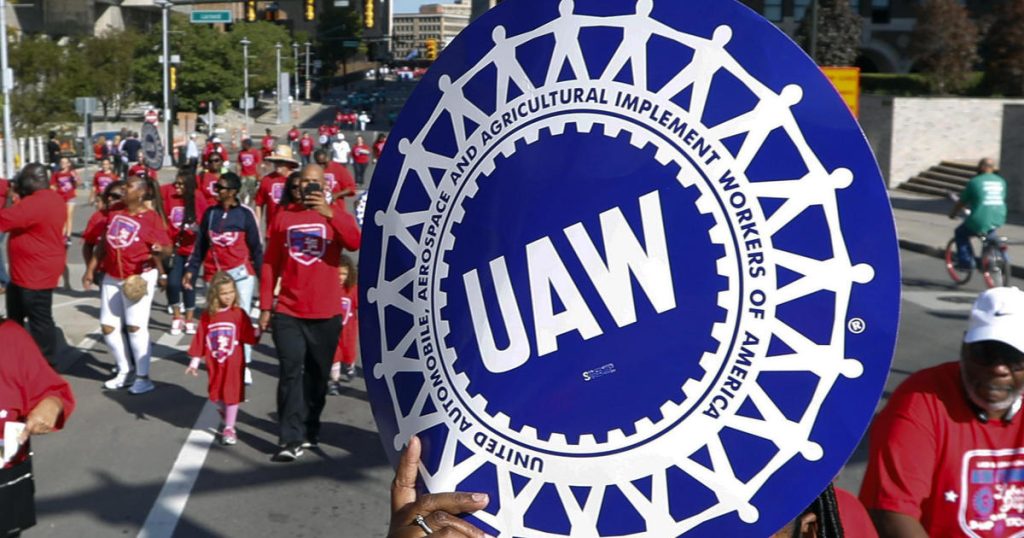The United Auto Workers union successfully reached a last-minute tentative agreement with Daimler Truck, avoiding a potential strike involving over 7,000 workers at various plants in North Carolina and distribution centers in Atlanta and Memphis, Tennessee. The four-year agreement, struck just before the expiration of the previous contract, includes wage increases of more than 25% over the next four years, with a 10% raise after ratification. The deal also eliminates wage tiers, introduces cost-of-living adjustments, and includes profit-sharing for the first time in Daimler history. UAW President Shawn Fain expressed satisfaction with the agreement, highlighting the positive outcomes for workers.
As part of the agreement, UAW members at Daimler locations will need to vote on the new contracts for finalization. The announcement by Daimler noted mutual benefits for all parties involved, emphasizing the importance of finalizing the contracts promptly. Daimler, a heavy-duty manufacturer that was previously associated with Mercedes-Benz before splitting off in 2021, acknowledged the significance of the agreement in the context of an ongoing effort by the UAW to organize southern auto assembly plants. The recent victory at a Volkswagen AG plant in Chattanooga, Tennessee, where 73% of voters chose to join the UAW, marked a significant achievement in the union’s expansion into southern states. Workers at Mercedes factories in Tuscaloosa, Alabama, are set to vote on UAW representation in May, with efforts facing opposition from Republican governors and business leaders in the region.
The successful negotiation between UAW and Daimler comes after heightened focus on labor relations in the automotive industry, particularly in the southern United States. The significant wage increases, elimination of wage tiers, and introduction of profit-sharing in the Daimler agreement reflect a shift towards more favorable conditions for workers in the sector. The broader campaign by the UAW to organize southern auto assembly plants has gained momentum, with recent wins at Volkswagen AG and ongoing efforts at Mercedes factories. Despite challenges from regional leaders and opposition from some sectors, the union’s success in securing favorable contracts reaffirms the importance of collective bargaining and worker representation in the industry.
The impact of the Daimler deal extends beyond wage and benefit improvements for workers, signaling a broader shift in labor dynamics within the automotive industry. The agreement underscores the effectiveness of union organizing efforts in securing better conditions for workers, as evidenced by the positive outcomes for UAW members at various Daimler locations. The potential for broader representation and improved working conditions through collective bargaining is highlighted by the recent victories and ongoing campaigns by the UAW in the southern United States. The significance of the Daimler agreement lies not only in the specific terms of the deal but in the broader implications for labor relations and worker rights in the automotive sector.


